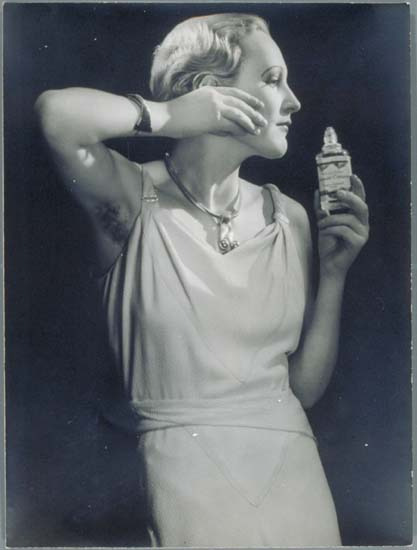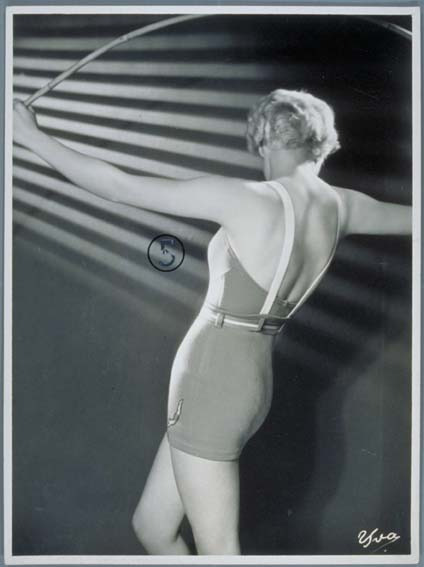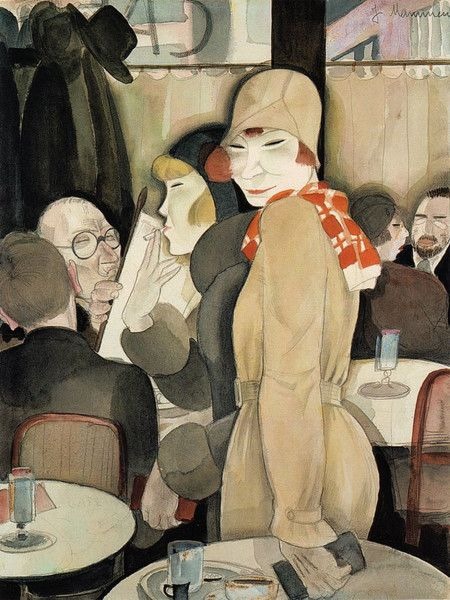#weimar art
Explore tagged Tumblr posts
Text

Fritz Lang makes himself a drink at the bar of his flat in Berlin, 1932. Photo by Martin Munkacsi.
98 notes
·
View notes
Text

Conrad Felixmüller (1897-1977)—The Children's Carnival Bustle [oil on canvas, 1926]
330 notes
·
View notes
Text

Wassily Kandinsky's drawings of dancer Gret Palucca, Berlin 1926
Photographed by Hugo Erfurth
62 notes
·
View notes
Text


Lotte Laserstein (German/Swedish, 1898 - 1993) • Self-Portrait with a Cat • 1928
#art#art history#painting#oil painting#self portrait#lotte laserstein#woman artist#androgynous self portrait#german artist#exiled artist#weimar art#artist as subject#the canvas mirror art blog#art blogs on tumblr#figurative painting#art lovers on tumblr
35 notes
·
View notes
Text

Credit: George Grosz (Berlin, Germany, later USA, 1893-1959). Costume design for the play Methusalem, 1922, watercolor, ink, and pencil on paper. Thanks to @mepaintsme for the tip.
#george grosz#cat#illustration#chat#katze#feline#drawing#zeichnung#dibujo#dessin#modern art#arte moderno#weimar art#cats in art#animals in art#art animalier#arte animal#kunst#Berliner kunstler
17 notes
·
View notes
Text


"Berlin was in a state of civil war," Christopher Isherwood writes in his Berlin Stories. "Hate exploded suddenly, without warning, out of nowhere." The failing Weimar government teetered on the verge of collapse, and along with it, the hopes of millions of Germans. Yet within the tumultuous early 1930s, high fashion nevertheless prevailed in Berlin.
Yva, a pioneering German-Jewish photographer, was a leading figure in the vibrant queer community of pre-Nazi Berlin. Her innovative work embodies the subtle elegance and boundary-pushing expressions of early 1930s aesthetics before the Nazi rise to power. Her evocative multiple exposure techniques and deliberately ungendered emphasis on the female figure offer a nuanced counterpoint to the artistic norms of the day, capturing glimpses of gender non-conformity and artistic sexual liberation that would soon be brutally suppressed.
Unfortunately, Yva was tragically unable to escape Germany before she and her husband were deported and murdered at the Majdanek concentration camp in 1942. Most of her negatives were destroyed, but in the years following the war, her surviving works were displayed at her last home in the Hotel Bogota at Schlüterstraße 45. Currently, the Staatliche Museen zu Berlin website maintains a digitalized collection of her work.
#1930s#1930s fashion#great depression#interwar period#yva#christopher isherwood#berlin#weimar republic#weimar art#history#fashion history#queer history#vintage#vintage fashion#vintage photography
6 notes
·
View notes
Text

Jeanne Mammen
Romanisches Café
1930
#jeanne mammen#modern art#weimar germany#weimar era#weimar art#weimar#german art#german painter#art history#women painters#women in art#cafe scene#cafe#cafe aesthetic#1930s art#1930s style#1930s fashion#1930s painting
34 notes
·
View notes
Text

3 notes
·
View notes
Photo

1920s Dodo (Dörte Clara Wolff), The Proposal. Watercolour on paper.
Dodo aka Dodo Burgner, Dörte Clara Wolff, Dörte Burgner, Dörte Clara Burgner, Dörte Wolff and Dorte Clara Wolff.
#1920s#painting#dodo#dörte clara wolff#the proposal#watercolor#dodo burgner#Dörte Clara Burgner#Dörte Burgner#dörte wolff#dorte clara wolff#weimar#weimar art#weimar painting#weimar era#weimar republic#berlin
39 notes
·
View notes
Text

Conrad Felixmüller (1897-1977) — Death of the Poet Walter Rheiner [oil on canvas, 1925]
389 notes
·
View notes
Text

Unknown photographer. Police photo of Liddy Bacroff, 1933. Gelatin silver print. Staatsarchiv, Hamburg.
Police photo of Liddy Bacroff (1908-1943) taken after an arrest, 1933. Barcoff described themself as a “homosexual transvestite”, lived from sex work, and was convicted several times. In 1943, they was murdered in the Mauthausen concentration camp.
Liddy Bacroff, a transgender woman initially from Ludwigshafen, who moved to Hamburg and lived for the majority of her life publicly presenting herself as a woman. She did not perceive herself to be a man (and, indeed, in papers she left after having been imprisoned, she determined what her name would be while also conspicuously referring to herself as “Liddy Bacroff, Transvestit”).
47 notes
·
View notes
Text

Café George Grosz 1915 Oil and charcoal on canvas 61 × 40.3 cm
31 notes
·
View notes
Text

A beautiful dancer posing in front of a mirror for the September 1926 issue of UHU Magazine. Image courtesy of Fotografisches Atelier Ullstein.
42 notes
·
View notes
Text

Otto Dix (1891–1969), Preparatory Drawing for Three Wenches painting, 1926, Charcoal,pencil,and white gouache and was on paper.
62 notes
·
View notes
Text

Albert Birkle, "Die Kupplerin" ("The Matchmaker"), 1932.
31 notes
·
View notes
Text

LYONEL FEININGER : "Houses at Night , Dessau" , 1929 . Gelatin silver print ; 17,8 x 23,5 cm / Bauhaus Archiv, Berlin.
87 notes
·
View notes